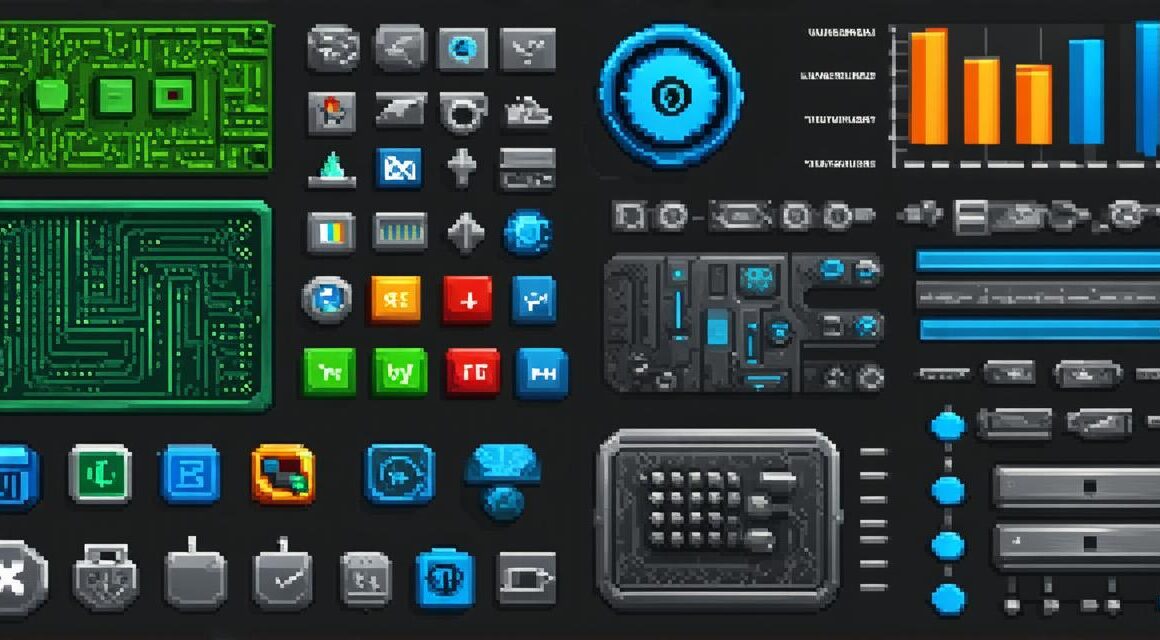Unity vs Unreal: A Brief Overview
When it comes to game development, there are two popular engines that dominate the market: Unity and Unreal. Both engines offer similar features and capabilities, making it difficult for developers to choose one over the other. In this article, we will explore the pros and cons of both engines and compare them to help you make an informed decision.
Pros of Unity
- Ease of use: Unity is known for its ease of use and simplicity. It has a user-friendly interface that makes it easy for beginners to get started with game development.
- Cross-platform support: Unity supports multiple platforms, making it easy for developers to create games for Windows, Mac, iOS, Android, and more.
- Large community: Unity has a large and supportive community of developers who contribute to the engine’s growth and provide resources and support to other developers.
- Asset store: Unity has an extensive asset store that offers pre-made assets, tools, and plugins, making it easy for developers to find what they need to create their games.
- Cost-effective: Unity is a cost-effective option for game development, with a free version available for personal projects and a paid version for professional projects.
Cons of Unity
- Limited graphics capabilities: Unity’s graphics capabilities are limited compared to other engines, making it difficult to create games with high-end graphics.
- Performance issues: Unity can suffer from performance issues on some platforms, particularly when running complex games.
- Limited support for VR and AR: Unity’s support for virtual reality (VR) and augmented reality (AR) is limited compared to other engines.
- Lack of advanced features: Unity lacks some advanced features that are available in other engines, such as real-time ray tracing.
Pros of Unreal
- Powerful graphics capabilities: Unreal’s graphics capabilities are some of the most powerful and feature-rich on the market, making it easy to create games with high-end graphics.
- Advanced features: Unreal offers advanced features such as real-time ray tracing, which is not available in Unity.
- Support for VR and AR: Unreal has excellent support for virtual reality (VR) and augmented reality (AR), making it easy to create immersive experiences.
- Large community: Unreal has a large and supportive community of developers who contribute to the engine’s growth and provide resources and support to other developers.
- Customizable: Unreal is highly customizable, allowing developers to tailor the engine to their specific needs.
Cons of Unreal
- Steep learning curve: Unreal has a steep learning curve, making it difficult for beginners to get started with game development.
- Limited support for non-Windows platforms: Unreal’s support for non-Windows platforms is limited, making it difficult to create games for iOS, Android, and other platforms.
- Expensive: Unreal is an expensive option for game development, with a paid version required for most projects.
- Complexity: Unreal can be complex and overwhelming for developers who are new to game development.
Which Engine is Right for You?
When deciding which engine to use, it’s important to consider your specific needs and requirements. If you’re a beginner looking for an easy-to-use engine with cross-platform support, Unity may be the right choice for you. On the other hand, if you’re looking for advanced graphics capabilities and features, Unreal may be the better option.
If you plan to create games for non-Windows platforms, Unity may be the better choice as it supports multiple platforms. However, if your primary focus is on creating games for Windows or other PC platforms, Unreal may be the better option.
Cost is also an important consideration. If you’re working on a budget, Unity’s free version may be sufficient for personal projects. However, for professional projects, Unreal’s paid version may be necessary.
In conclusion, both Unity and Unreal are powerful game engines with their own unique features and capabilities. When deciding which engine to use, it’s important to consider your specific needs and requirements, as well as the pros and cons of each engine. With the right choice, you can create an engaging and immersive gaming experience that will captivate players and keep them coming back for more.



